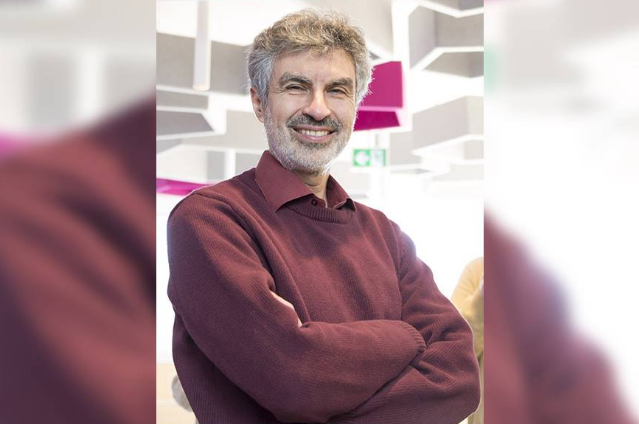Yoshua Bengio, one of the most prominent figures in the field of artificial intelligence, has consistently advocated for the responsible development of AI and its alignment with human values. In recent years, he has been increasingly vocal about the need for a “Humanity Defense Organization” to address the ethical and societal challenges posed by AI.
Bengio, a co-recipient of the prestigious Turing Award in 2018, is known for his pioneering work in deep learning, a subfield of AI that has seen remarkable advancements in the last decade. His research has not only pushed the boundaries of AI but also raised important questions about its impact on society. It is in this context that he has proposed the concept of a Humanity Defense Organization.
The Rise of AI and Ethical Concerns
As AI technologies have become more sophisticated and integrated into our daily lives, ethical concerns have arisen. Issues such as bias in algorithms, privacy violations, and the potential for AI to be used in harmful ways have gained significant attention. These concerns have fueled the call for robust governance and regulation of AI systems.
Yoshua Bengio’s proposed Humanity Defense Organization aims to address these challenges. The organization would act as a global entity with a mission to ensure that AI is developed and deployed in ways that prioritize the well-being of humanity. It would serve as a regulatory body, an advocate for responsible AI, and a center for ethical research and development.
The Core Objectives of the Humanity Defense Organization
Ethical Guidelines: The organization would work on establishing and promoting ethical guidelines for AI research and development. This includes addressing issues related to fairness, transparency, accountability, and the avoidance of harm.
Oversight and Regulation: It would oversee AI developments across industries and have the authority to regulate AI applications in cases where they pose risks to society. This could include the prohibition of certain AI technologies or applications that are deemed unethical or dangerous.
Research and Education: The Humanity Defense Organization would support research that focuses on the ethical, societal, and long-term implications of AI. It would also play a role in educating the public, policymakers, and AI practitioners about the ethical use of AI.
International Cooperation: Given the global nature of AI, this organization would facilitate international cooperation to create consistent standards and regulations for AI.
Important Considerations
Building upon the idea of a Humanity Defense Organization, it is important to consider the practical steps and strategies that could lead to its establishment and effectiveness.
Multidisciplinary Approach: To address the multifaceted challenges posed by AI, the organization should bring together experts from diverse fields, including computer science, ethics, law, sociology, and more. This multidisciplinary approach can ensure a holistic perspective on AI’s impact on society.
Transparency and Accountability: The organization itself must be transparent and accountable in its operations. Openness about its decision-making processes, funding sources, and regulatory actions is essential to maintain trust from the public and stakeholders.
Public Engagement: Engaging the public in the discourse around AI ethics is crucial. The organization should facilitate public forums, discussions, and consultations to gather input and perspectives from a wide range of people. It’s vital to ensure that AI regulations reflect the values and concerns of the broader society.
Continuous Adaptation: AI is a rapidly evolving field, and ethical considerations should evolve with it. The organization should have mechanisms in place to adapt to emerging technologies and new ethical dilemmas, ensuring it remains relevant over time.
International Cooperation: Collaboration among nations is vital, as AI knows no borders. International agreements and standards must be developed to create a harmonized global framework for ethical AI development and use.
Educational Initiatives: Besides research, the organization should focus on education. This includes educating AI developers, policymakers, and the general public about the ethical considerations surrounding AI. Workshops, courses, and resources can help foster a culture of responsible AI development.
Ethical Audits and Impact Assessments: The organization can develop procedures for conducting ethical audits and impact assessments for AI projects, helping organizations identify and mitigate potential ethical issues during development.
Whistleblower Protections: Encouraging individuals within the AI industry to report unethical practices or misuse of AI is crucial. Implementing whistleblower protections can help uncover and rectify ethical violations.
Collaboration with Industry: Collaboration with tech companies and industry leaders is vital. The organization should work closely with private sector entities to align their AI development practices with ethical standards.
Balancing Innovation and Ethics: Striking the right balance between fostering innovation and enforcing ethical standards is challenging but necessary. The organization should consider flexibility in regulations to adapt to different use cases and potential benefits of AI.
Challenges and Controversies
The proposal for a Humanity Defense Organization is not without its challenges and controversies. Some argue that it might stifle innovation, lead to excessive bureaucracy, or be used as a tool for political control. Striking the right balance between ethical oversight and innovation will be a key challenge.
Moreover, the establishment of such an organization would require international cooperation and consensus, which can be difficult to achieve in a rapidly evolving field like AI.
Conclusion
Yoshua Bengio’s call for a Humanity Defense Organization is a reflection of the growing awareness of the ethical and societal implications of AI. While the proposal may face hurdles and require careful consideration, it underscores the need for robust ethical frameworks and global cooperation in the development and deployment of AI. The conversation around AI ethics and governance is likely to continue evolving, with figures like Bengio playing a critical role in shaping the future of AI for the benefit of humanity.

